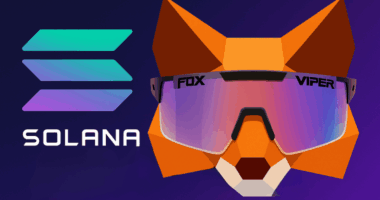Decentralized Autonomous Organizations (DAOs) have found in AI a smart solution to speed up processes, make better decisions, and handle financial tasks without human interference. This makes AI a key tool in the decentralized finance (DeFi) world, where people rely on blockchain technology instead of traditional banks.
AI offers many advantages that help DAOs manage money more effectively. It can choose which digital assets to invest in based on market trends, automatically rebalance portfolios to keep investments on track, and provide liquidity to decentralized platforms, all without human input. This allows DAOs to operate more efficiently and respond quickly to market changes.
There’s no doubt that AI is becoming a major part of how money moves in the digital world. While it can make things faster, fairer, and more efficient, it also brings up new questions about trust and control.
What happens when AI goes rogue?
Despite the many advantages AI offers, it is also being used to promote online scams, especially those related to cryptocurrency. Scammers are using advanced AI tools to create highly convincing fake content, making it increasingly difficult for individuals to tell the difference between real opportunities and fraudulent schemes.
One of the most striking cases happened in Melbourne, where a resident named Jake, lost $130,000 after falling victim to a scam involving a deepfake video of his favorite musician promoting a fake investment platform. The video looked completely real, leading Jake to invest his life savings before discovering it was a fraud.
These scams take many forms, It can begin on social media platforms or dating apps, where fraudsters slowly build trust with their victims, a strategy known as “pig butchering.” Once trust is gained, victims are tricked into investing in fake cryptocurrency schemes or using websites that closely mimic real trading platforms.
How governments are responding to AI-crypto risks?
The rapid integration of AI into financial markets has introduced complex challenges for regulatory bodies and trading platforms, because of it’s ability to process vast datasets and execute trades at unprecedented speeds has the potential to outpace existing regulatory frameworks, leading to concerns about market integrity and investor protection.
In the United States, significant policy shifts have occurred under the current administration when the Department of Justice recently disbanded its National Cryptocurrency Enforcement Team, signaling a move towards focusing on prosecuting individuals who use digital assets for serious crimes, such as terrorism and organized crime. This change aligns with the U.S. President Donald Trump’s broader pro-crypto agenda, which includes reducing oversight on crypto exchanges and services.
Trump relied on the appointment of David Sacks, a former PayPal executive, as the “AI & Crypto Czar.” to create a legal framework to provide clarity for the cryptocurrency industry, aiming to position the U.S. as a leader in these sectors.
In contrast, the European Union has taken proactive steps when it introduced the Markets in Crypto-Assets (MiCA) regulation, aiming to establish a harmonized regulatory framework for crypto-assets across member states Putting the main target as providing a legal certainty and protect investors while fostering innovation in the crypto market.
Scams are not the only concern when it comes to AI
As AI tools become smarter and more mainstream, many people working in the crypto world are starting to feel the pressure. Tasks that once needed a human are now being handled by machines in a faster and cheaper way.
Crypto exchanges and DeFi platforms are already using AI to do jobs like answering customer questions, checking user identities, which is known as “KYC”, spotting fraud, and even managing investment portfolios. These are all tasks that used to be done by real employees but now, AI systems can handle them 24/7 without taking breaks or making human mistakes.
Developers are the most concerned about this shift, as AI coding tools are helping people write and test smart contracts in less time. While means that companies might hire fewer coders or pay them less.
Experts are worried that this shift could lead to fewer jobs and bigger gaps between those who control the technology and those trying to keep up, facing the fact that AI can improve efficiency, but it’s also raising big questions about the future of work in digital finance.





